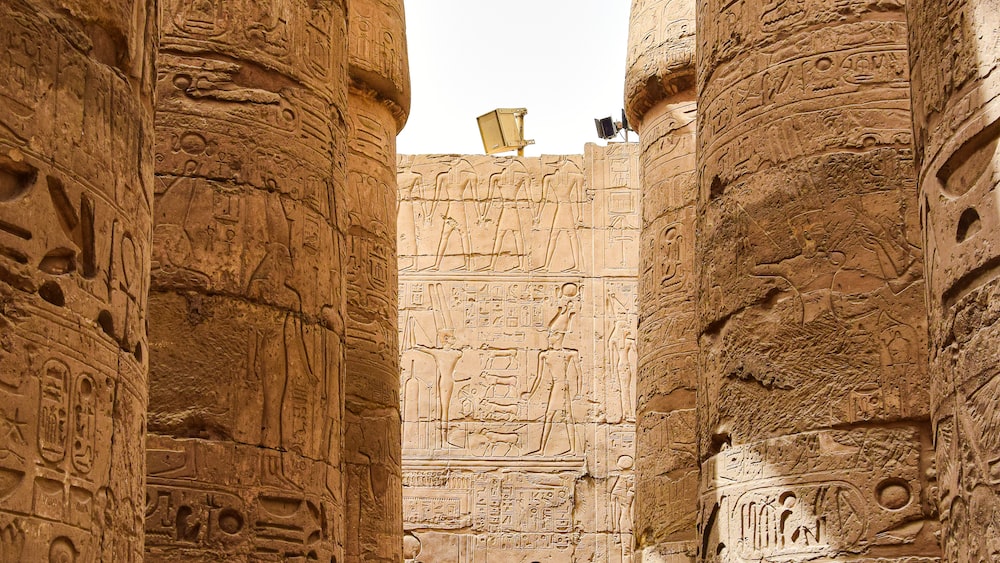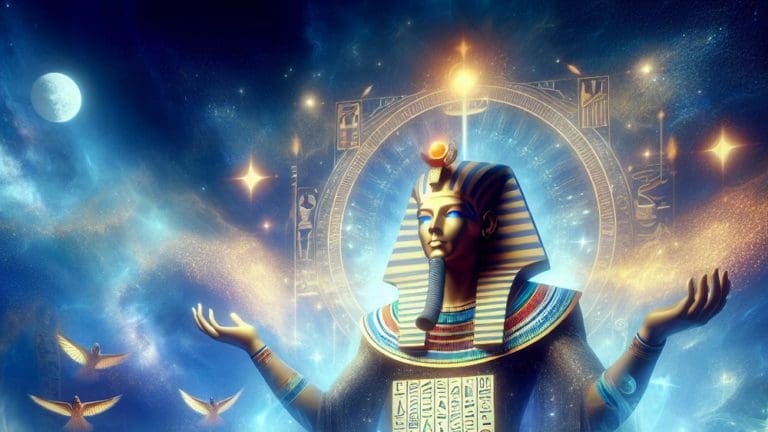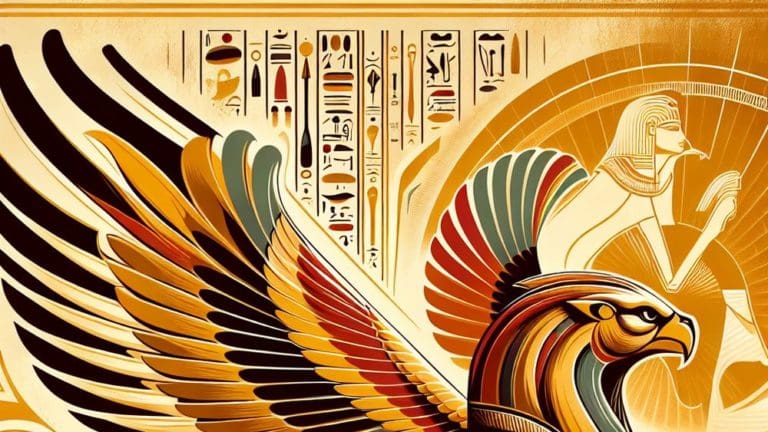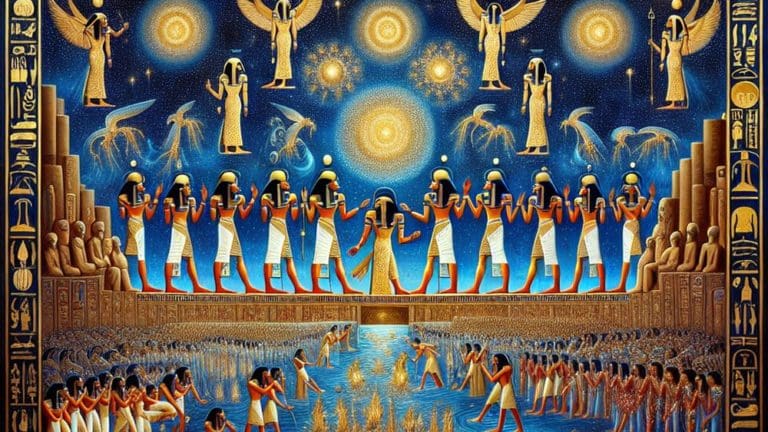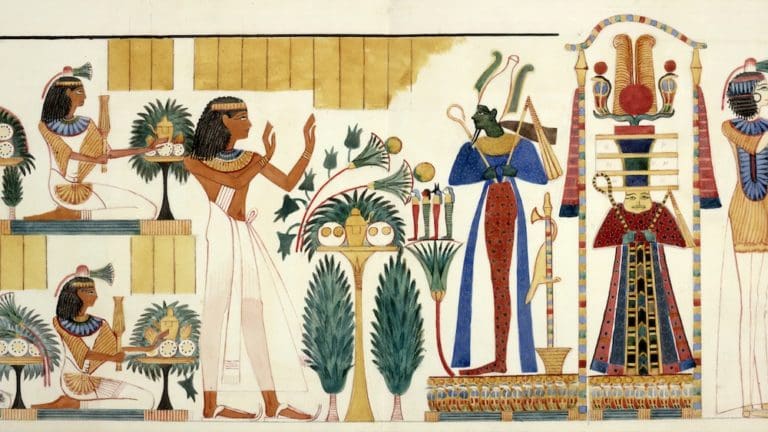Master The Perfect Pronunciation Of Atum, The Egyptian God
Master The Perfect Pronunciation Of Atum, The Egyptian God
Tucked away in the annals of time, obscured by the thick veils of history is a phenomenal being – Atum, one of the most important gods of ancient Egypt. But do we ever ponder on the mysteries cloaked around this deity? Today, we shall embark on an incredible journey into the forgotten corridors of ancient Egyptian civilization, as we delve deep into unveiling the atum egyptian god pronunciation and the significance that it holds timelessly.
Our journey will take a turn towards the enigmatic and ancient city of Heliopolis – the center of the worship of Atum, the He-who-came-into-being. For all you ardent history enthusiasts, this expedition promises a rollercoaster of information, exciting anecdotes, and tales of yore wound around Atum. So, buckle up, and prepare to learn the correct pronunciation of this hallowed name that held sway over the ancients of Egypt for centuries!
Who is Atum in Egyptian Mythology?
In the mystical world of Egyptian mythology, Atum holds sovereign status. He is, in essence, the primeval force, the deity of creation who existed at the dawn of creation, before any other gods were breathed into existence. Unraveling the mysteries and nuances behind Atum, we attune ourselves with the whispers of the ancient world.
The Role of Atum in Egyptian Mythology
Atum held many a title in Egyptian mythology, the most captivating among them being ‘The Complete One’. He was the first god to exist, emerging from the primeval waters of Nun that encompassed the universe. The Egyptians perceived Atum as the originator of the world, the deity who gave birth to the first pair of gods – Shu and Tefnut, thereby setting the stage for the entire Egyptian pantheon’s creation.
Acclaimed as The Setting Sun, Atum thus symbolized the cycle of day and night. As the sun set, the Egyptians believed Atum journeyed through the underworld, fighting off fiendish forces of chaos and darkness, only to reappear at dawn, reborn and rejuvenated. Thus, he became an emblem of resilience, a testimony to the undying spirit of survival.
The exalted position of Atum in Egyptian mythology is not surprising, given his crucial role as a creator deity. He was believed to maintain the world’s equilibrium, warding off chaos, sowing harmony, and perpetuating the cosmic cycle of life, death, and rebirth.
Atum, known as ‘The Complete One’, is the Egyptian god who symbolizes resilience and the cycle of day and night, playing a crucial role in maintaining the world’s equilibrium and perpetuating the cosmic cycle of life, death, and rebirth.
The Symbolism of Atum
Atum emerges as a striking figure in Egyptian mythology, not just for his deeds but also for his symbolism. Visualized as a man wearing the double crown of Upper and Lower Egypt, Atum epitomizes unity, asserting the harmony between the two regions, cementing his status as the supreme deity who ruled all.
Moreover, Atum’s association with the setting sun colored him with an additional layer of symbolism – that of death and rebirth, of endings and beginnings. His cyclical journey from the heights of the celestial sky to the depths of the underworld epitomized the inexorable flow of life – simultaneously a journey into darkness and the possibility of renewal.
The Pronunciation of Atum
For a name that carries such monumental significance, pronouncing Atum the right way is essential to enjoy the full taste of its linguistic richness and the echoes of history it carries.
The Phonetic Breakdown of Atum
Let’s crack the phonetics of ‘Atum’. As we take each syllable apart, the pronunciation becomes clear. The first syllable ‘A’ is pronounced ‘ah’ like in ‘father’. The next syllable is ‘tum’, pronounced as ‘tuhm’. Put them together, and we get ‘Ah-tuhm,’ the correct way to pronounce the name of this venerated creator deity.
Common Mispronunciations of Atum
However, common mispronunciations of Atum are as widespread as the sands of the Sahara. One frequently hears ‘Atoom’ instead of ‘Atum’ or the stress placed wrong as ‘Atúm.’ These mispronunciations may seem harmless, but they distort the name’s authentic flavor. Let’s not forget, in getting the atum egyptian god pronunciation right, we validate the culture and history that Atum stands for.
In getting the pronunciation of Atum right, we validate the culture and history that Atum stands for.
The Importance of Correct Pronunciation in Ancient Egyptian Language
Delving into the world of the Ancient Egyptians, we invariably come across fascinating gods, deities, and legends. One such intriguing character is Atum, whose name echoes through the annals of history. Understanding the correct atum egyptian god pronunciation is significant as it brings to light fascinating historical and cultural nuances that enhance our engagement with such historical characters and texts.
The Role of Pronunciation in Understanding Ancient Egyptian Culture
Pronouncing an ancient Egyptian god’s name correctly is not a mere academic endeavor – it’s a profound journey into the past, an exploration into the cultural fabric of an old civilization. The right atum egyptian god pronunciation can provide substantial insights into the Ancient Egyptians’ world. This is expected as speech was a crucial element of their society, religious practices, and rituals.
Language held a sacred place amongst the Egyptians. The name Atum, for instance, wasn’t just a label, it was a symbol, an embodiment of who he was – the creator god, the harbinger of time and space. Therefore, understanding Atum’s correct pronunciation, mirrored in hieroglyphs and papyri, is akin to unveiling the spiritual and cultural significances tied to his existence.
The Impact of Mispronunciation on the Interpretation of Ancient Egyptian Texts
Mispronunciation distorts not simply the phonetic accuracy, but also the underlying meaning behind ancient text narratives. For instance, in the case of atum egyptian god pronunciation, incorrect articulation could lead to misinterpretation of the deity’s role or mythology, causing dissonance in understanding Egyptian theology.
Another crucial aspect is the potential alteration of Ancient Egyptian historical interpretations due to inaccuracies in pronunciation, which could lead to miscommunication of the profound metaphoric and literal meanings embedded in their literature. The Egyptians were known for their symbolic use of language, where the name Atum, for example, implied ‘completion or perfection’. Mispronunciation could jeopardize comprehending such deep-rooted symbolism, thereby creating a skewed perception of their culture and mythology.
Practical Guide to Pronouncing Atum
Embarking on this historical journey, let’s traverse the path less taken and master this unique verbal quest together. Our motto is to conquer the labyrinth of atum egyptian god pronunciation. Here’s a practical guide to aid you in this enlightening venture.
Step-by-Step Guide to Pronouncing Atum
- Begin with the initial vowel sound ‘A’ as you would say in ‘about’, not ‘ant’.
- For the second sound, pronounce ‘tum’ like ‘tomb’. Thus, ‘A-tum’ becomes the phonetic pronunciation of Atum.
To reinforce your pronunciation practice:
- Attempt to say ‘A-tum’ several times until it feels natural.
- Record your pronunciation and listen to it. Comparisons with native pronunciations can be enlightening.
- Make use of pronunciation apps. They often have phonetic spellings and audio versions that can significantly aid your practice.
Navigating through the maze of Ancient Egyptian pronunciations can be a challenge. However, employing the correct atum egyptian god pronunciation not only adds authenticity to your lexicon but also elevates your understanding of the Ancient Egyptian civilization.
Tips and Tricks for Mastering the Pronunciation of Atum
When tackling the pronunciation of Atum, be mindful of these pointers:
- A shallower and broader ‘A’ at the beginning akin to ‘uh’ or ‘ah’ in father, not ‘a’ in apple.
- ‘Tum’ resembles ‘tomb’, not ‘thumb’. The ‘T’ should be clear, not muffled.
Through conscious practice, appropriate references, and patient repetition, the atum egyptian god pronunciation can become a familiar territory in your linguistic journey. Remember, pronunciation is a blend of skill and art, shaped and polished with time – just as the story of the Egyptians unfolded over millennia. Happy Exploring!
The pronunciation of Atum can be mastered by practicing a shallow and broader ‘A’ sound, a clear ‘T’ sound, and by repeating it patiently over time.
Frequently Asked Questions
1. Why is the correct pronunciation of Atum important?
The correct pronunciation of Atum is of high importance as every name in the ancient Egyptian language held a hidden, magical essence. By pronouncing Atum’s name correctly, we can connect more intimately with the energy, lore, and mythology of this primordial deity. Imagine stepping back several millennia, wrapping your tongue around those ancient syllables just as the priests of yore did. It’s a breathtaking opportunity to touch the past, and that’s why it matters.
2. What are some common mispronunciations of Atum?
Common mispronunciations of Atum often hinge on the final ‘m’. Importantly, it should not possess the same emphasis we place on the ‘m’ sound in English. Instead, imagine it more like a swiftly exhaled breath, a silent ghost of a consonant brushing past your lips. Additionally, ‘A’ in Atum, should not be pronounced as in ‘apple’, but rather with the openness of the sound found in ‘father’.
3. How can I practice pronouncing Atum correctly?
Practicing the pronunciation of Atum effectively requires patience and curiosity. Here’s a basic approach: Firstly, break down the name into phonetic components: ‘A’ as in father, ‘tu’ as in too, and ‘m’ like a soft whisper. Then, practice saying these components individually before gradually blending them together. With regular practice, the ancient name of Atum could roll off your tongue as if you’ve been speaking ancient Egyptian your whole life!
4. Are there other Egyptian gods with similar pronunciation challenges?
There are indeed other Egyptian deities with similar pronunciation challenges. Names like Ptah, Khnum, and Hapi each possess their own unique quirks and inflections that may seem puzzling to the untrained ear. Just like Atum, properly pronouncing these names can invite a deeper connection with the mystical aura of ancient Egypt.
Conclusion
Unveiling the mysteries of the past is no simple task, and each journey of discovery starts with small steps. We hope this article has equipped you with the knowledge and enthusiasm to master the pronunciation of the Atum Egyptian god and connect more deeply with the ancient Egyptian culture and mythology.
The ‘atum egyptian god pronunciation’, while potentially challenging, can become second nature with some practice. And should you stumble along the way, remember that every attempt, every syllable spoken is a testament to your passion for history, a passion that binds every history enthusiast, amateur archaeologist, and traveler on this path of discovery.
As we bring our journey to a close, remember that the exploration of history is an endless voyage. Just as the ancient Egyptians believed Atum was the origin, the spark that breathed life into the universe, so too does each seed of curiosity sown ignite our pursuit for knowledge. Let’s keep unraveling the past together, one pronunciation, one mystery, one hidden story at a time. Until next time, this is Cedric, signing off. Keep the fire of discovery burning bright!

